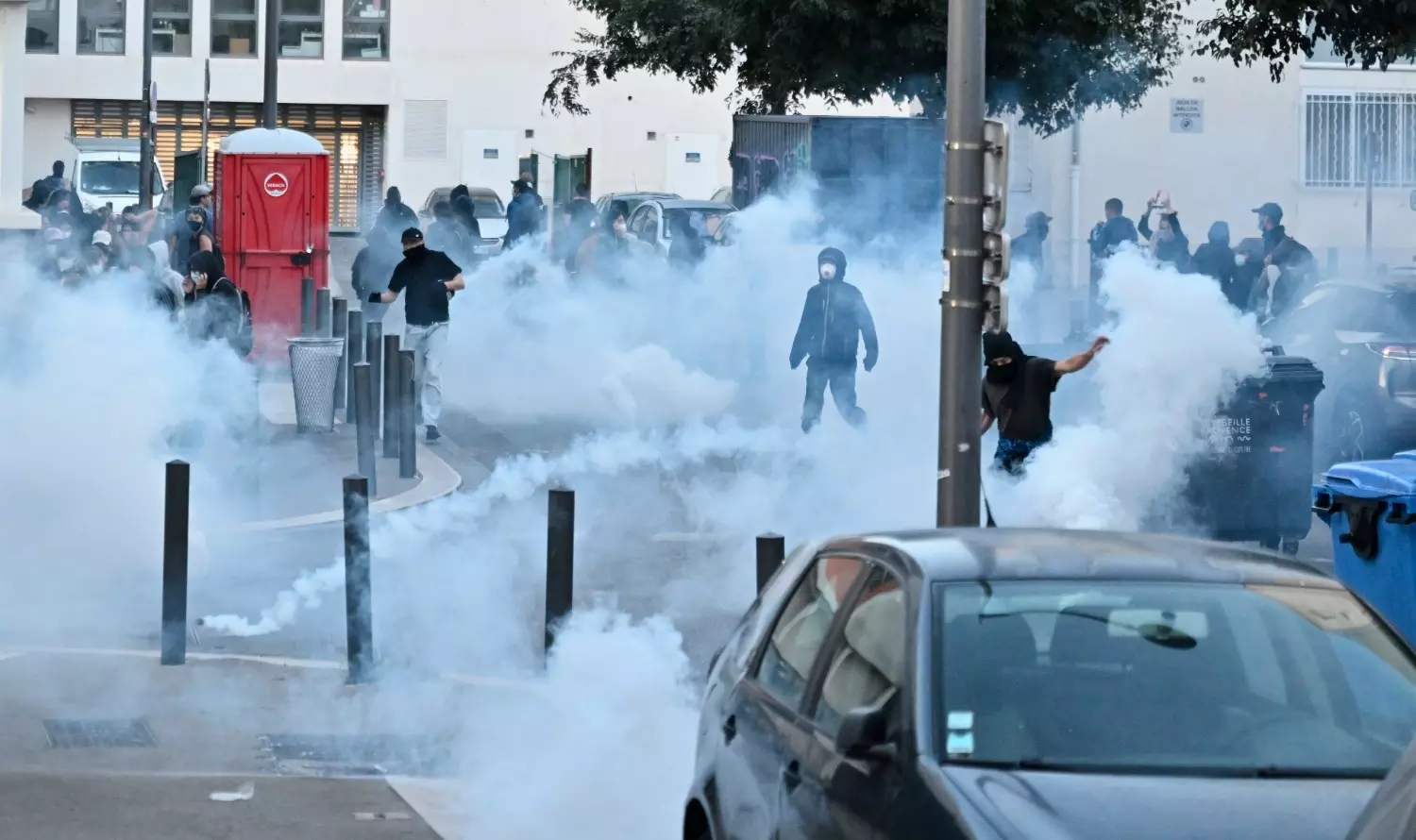
France erupts in violent protests after Macron appoints new PM
'Block Everything' protests, fuelled by anger over Macron government's austerity measures, lead to clashes with police, road blockades and hundreds of arrests

France was engulfed in nationwide protests on Wednesday (September 10), with demonstrators clashing with the police, blocking roads, and setting things on fire in Paris and other cities, amplifying public anger at President Emmanuel Macron and his government.
The unrest coincided with the swearing-in ceremony of the country’s new prime minister, as groups of protesters blocked highways, bridges, and roundabouts in a show of frustration about the nation’s political direction, the New York Times reported.
The day of protest, a rejection of proposed austerity measures fuelled by anger against President Macron, had been expected for weeks.
Also Read: PM Modi speaks to Macron, pushes for peaceful resolution of Ukraine conflict
Unrest in France
Across France, protesters disrupted traffic, set fire to rubbish bins, and clashed with security forces as part of the "Block Everything" protests in response to anger at the political class and planned budget cuts, Reuters reported.
Security forces were reportedly deployed nationwide and worked swiftly to remove blockades, but scuffles broke out and dozens of people were arrested.
The demonstrations took place at a time of political turmoil, less than 48 hours after the government lost a confidence vote and collapsed, leaving a sudden power vacuum.
On September 9, Macron appointed his fifth prime minister in under two years, Sebastien Lecornu, a move that sparked outrage among left-wing politicians.
Protests affect daily life
In Paris, firefighters cleared burnt debris from a barricade erected by students to block traffic near a high school. According to Reuters, Paris police arrested 132 police during the demonstrations.
In Nantes, protesters blocked a highway with burning tires and bins, prompting police to fire teargas to disperse crowds attempting to occupy a roundabout.
Further south in Montpellier, clashes broke out as police confronted demonstrators who had set up a barricade at a roundabout. One protester carried a banner reading “Macron resign”. Police again used teargas as some protesters hurled objects at them.
While the protests fell short of their declared goal of paralysing the country, they caused widespread transport and commuter disruptions.
Also Read: French President Macron says France will recognise Palestine as state
'A climate of insurrection'
Authorities confirmed that over 200 people were arrested in the early hours of the unrest. Interior Minister Bruno Retailleau said a bus was torched in Rennes, and train services in the southwest were halted after a power line was damaged.
He accused protesters of attempting to create "a climate of insurrection", noting that 80,000 security forces, including 6,000 in Paris, had been deployed. French media reported that up to 100,000 people were expected to take part in the demonstrations.
Reuters also reported protests and traffic disruptions on highways throughout the country, including Marseille, Montpellier, Nantes and Lyon.
Also Read: France: Air traffic controllers' strike disrupts travel, 40 pc flights cancelled in Paris
'Block Everything' movement
The “Block Everything” movement, a broad expression of discontent with no centralised leadership and an ad-hoc organisation by social media, emerged in May among right-wing circles but has since gained momentum among left-wing and far-left groups.
The movement’s rapid online growth reflects widespread public discontent, with protesters accusing a dysfunctional elite of pushing a harsh austerity agenda.
The movement has drawn comparisons to the 2018 “Yellow Vest” uprising, which began as a protest against fuel taxes before evolving into a broader revolt over inequality and living costs.

